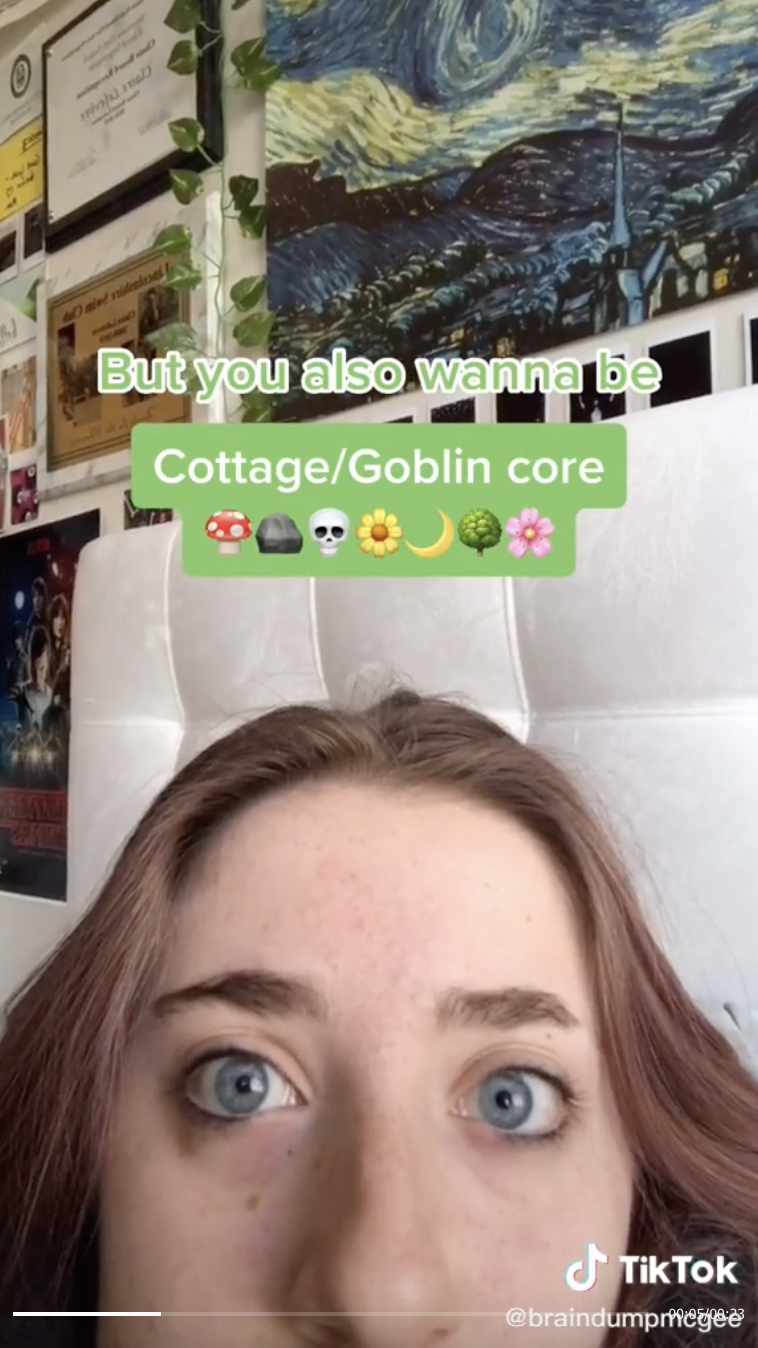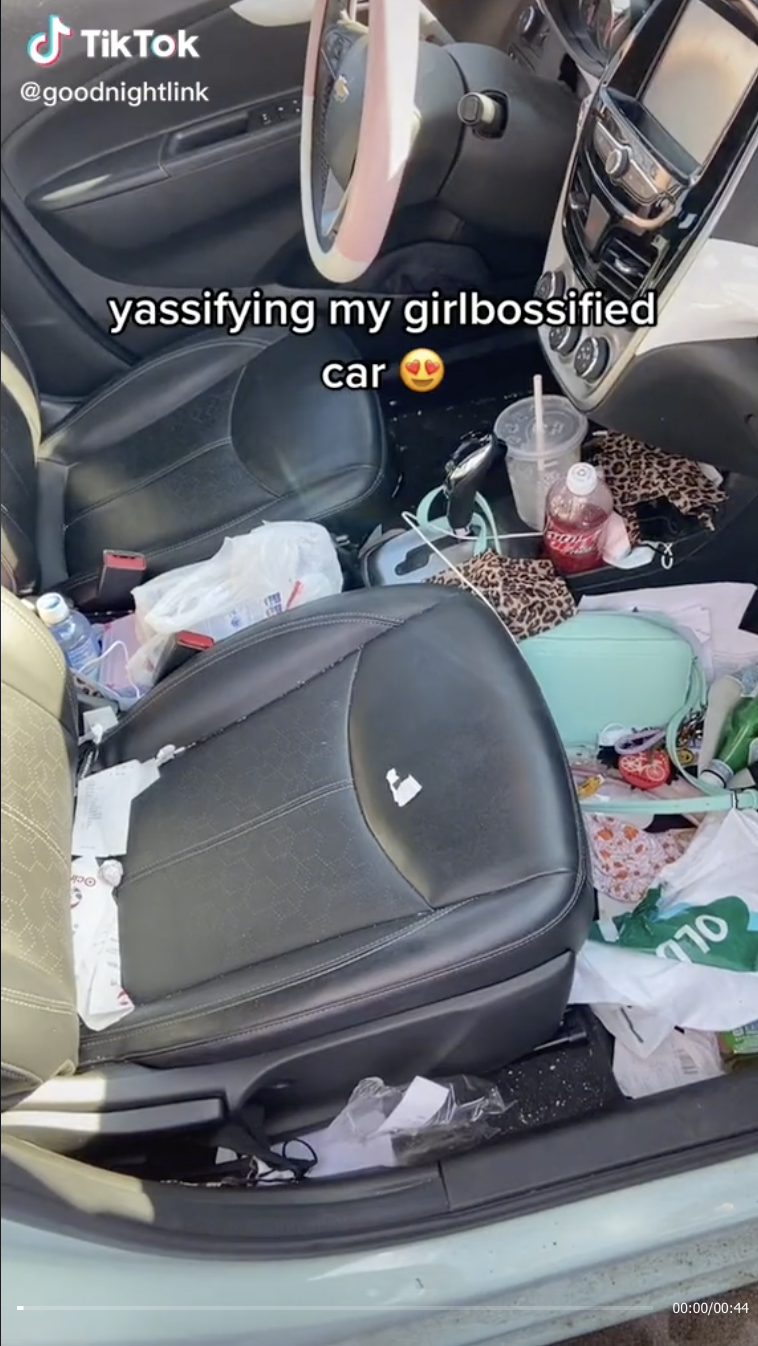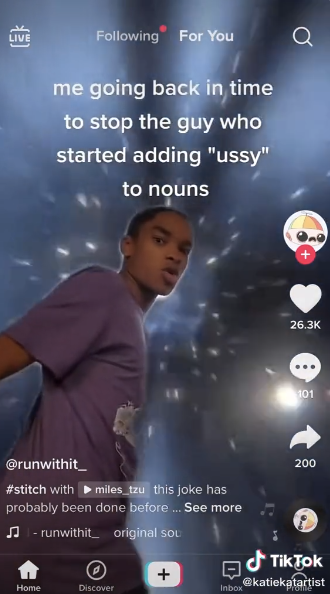This is an excerpt from Please Like Me, BuzzFeed News’ newsletter about how influencers are battling for your attention. You can sign up here.
Internet culture experts have often noted that the comment section of a TikTok video might be its greatest comedic asset. It’s like the damp, dark underside of a post — but instead of growing fungus, it grows trends.
Because you can’t share a video or photo in the comments of a TikTok, some of the most popular responses contain references to slang and other verbal memes.
One such comment-driven TikTok trend is the suffix “-ussy” added to the end of a word. It first appeared on Gay Twitter at least five years ago and found new life in the comments of TikTok posts. In early March, MEL Magazine declared it “peak ‘-ussy.’”

Though suffixes have been around since the dawn of the language, adding a slang suffix to the end of an existing word has become a trend in itself.
Take the suffix “-core,” which has become something like an antidote to TikTok’s rapid introduction of weird little visual aesthetics. It comes from the French word “coeur,” meaning heart, but first appeared in English in the 1930s with “hard core.” Decades later, we got “normcore.” Now, we have “cottagecore,” “goblincore,” and 157 others approved by the Aesthetics Wiki.

You might also have seen “-pilled” around, which branched off from the term “redpilled” — a well-known concept from the Matrix movie franchise that was later co-opted by white supremacists, incels, and alt-right supporters of Donald Trump in 2016. Now, you can be “pilled” by anything that has affected your worldview, from Twilight-pilled to crypto-pilled.
More vaguely, suffixes like “-ification,” “-ify,” and “-ization” are used to conceptualize things we don’t have a name for yet. Even mainstream media sites use words like meme-ification and yassify and merch-ization. They denote that something is happening — something involving the root of the word — but there isn't a word to describe that something yet.
In the 1970s, inspired by the ubiquity of Watergate, it became popular to slap “-gate” at the end of a word to describe an unfolding scandal. Suffixes such as “-licious” (bootylicious) and “-worthy” (cringeworthy, Instagram-worthy) also originated decades ago but have spread so widely — even beyond American English — and maintained such staying power that academics have studied their impact.
These suffix trends, both old and new, are memorable and easy to use. You don’t have to think too hard to create the meme or decipher it. But all these prevalent nonsense suffixes probably could not have caught on if it weren’t for social media.

Sylvia Sierra, a linguist and assistant professor of communication and rhetorical studies at Syracuse University, told BuzzFeed News that this kind of creative “language play” is pervasive on the internet.
“Adding trendy suffixes to the ends of existing words is appealing for both content creators and audiences online,” she said. “It's definitely a pattern we easily recognize and appreciate, which makes it easy to play around with and for people to feel like they are in on the joke.”
Though many of the suffixes that fall under this trend aren’t brand new, they’ve never been used like this before. Much of the joy in suffix-ify-ing a word now comes from the absurdity of smashing two words together that never would have met in organic conversation.
That’s a welcome respite from the issues of appropriation and plagiarism that frequently sour TikTok’s ecosystem.
In pursuit of virality, TikTok encourages imitation. Though a meme in its most basic form is just an internet inside joke remixed over and over again until it's unbearable, taking someone else’s idea and repackaging it to your taste is especially encouraged on TikTok. Copy someone’s video format, use their sound, or mimic their dance moves and you might be rewarded with likes and views.

This concept has made its way to language. Modern slang isn’t just fixating on certain words and using them in a sentence as much as possible. It’s altering the meaning of root words to meme the building blocks of language so that it becomes unique to our Very Online times.
In other words, we’ve all been slang-pilled to use internet-core language. It’s the meme-ification of English, and I will personally be putting my whole Kels-ussy into it.
